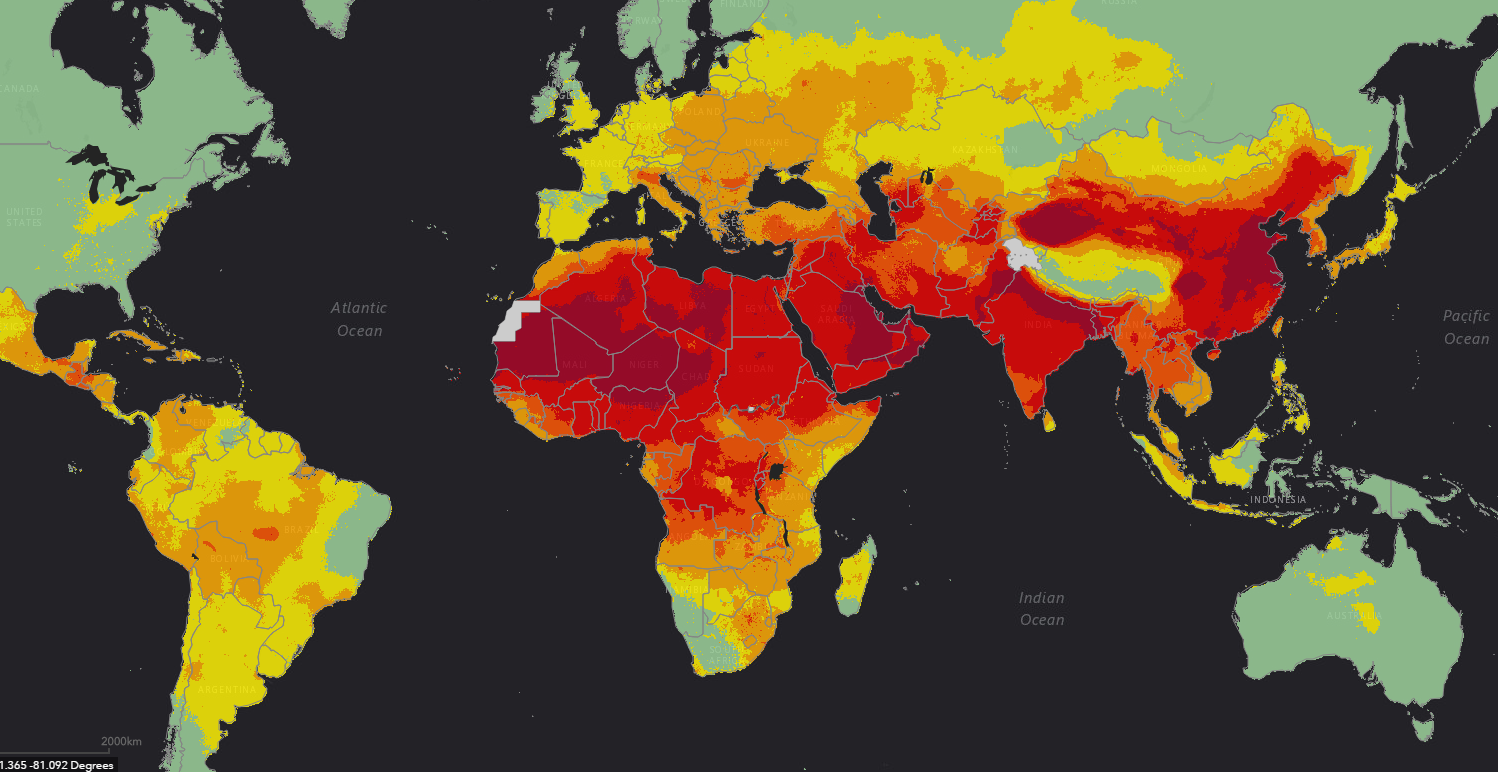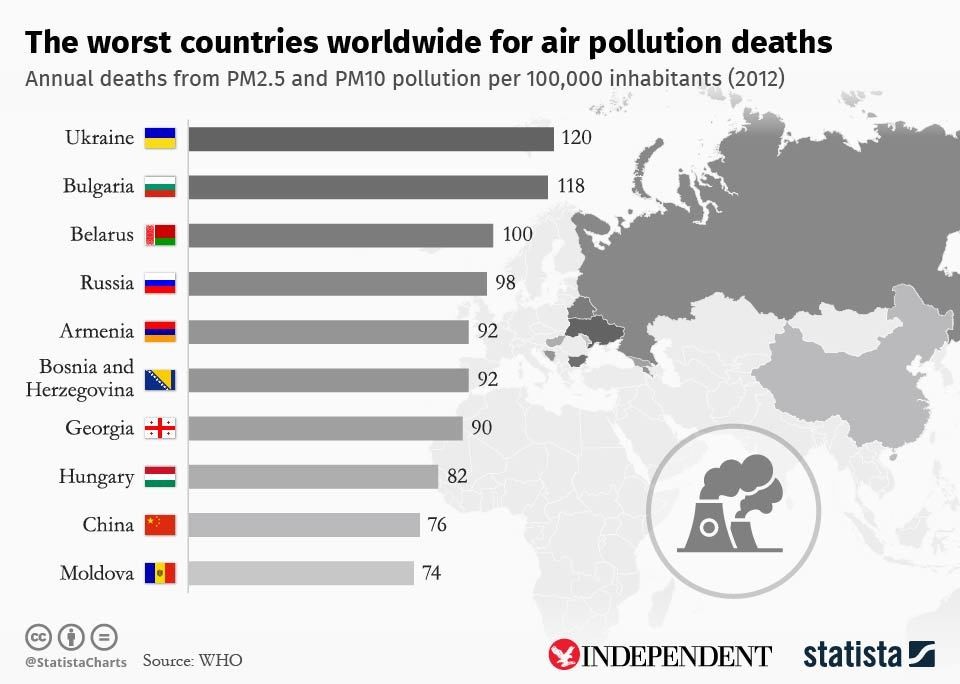7 shocking facts about air pollution

Air pollution is the fourth-largest threat to human health. Image: REUTERS/Prometeo Lucero

Get involved with our crowdsourced digital platform to deliver impact at scale
Stay up to date:
Future of the Environment
Air pollution is the deadliest form of pollution, killing millions of people each year, according to a new study.
The Cost of Air Pollution, a joint report by the World Bank and the Institute for Health Metrics and Evaluation (IHME), also highlights the economic toll, showing that premature deaths linked to air pollution cost the global economy hundreds of billions of dollars in lost labour income.
Facts about Air Pollution
Here are some shocking air pollution facts that everyone needs to know.
92%
More than nine out of 10 of the world’s population – 92% – lives in places where air pollution exceeds safe limits, according to research from the World Health Organization (WHO).

4th
Another air pollution fact is that it is the fourth-largest threat to human health, behind high blood pressure, dietary risks and smoking.
The health risks of breathing dirty air include respiratory infections and cardiovascular diseases, stroke, chronic lung disease and lung cancer.
6.5 million
There were an estimated 6.5 million deaths worldwide from air pollution-related diseases in 2012, WHO data shows. That’s 11.6% of all global deaths – more than the number of people killed by HIV/AIDS, tuberculosis and road injuries combined.
94%
Almost all deaths (94%) linked to air pollution occur in low- and middle-income countries, the WHO says.
Parts of Africa, Eastern Europe, India, China and the Middle East are the biggest regional danger spots.
More than 1 million air pollution-related deaths occurred in China and over 600,000 in India in 2012, according to the WHO. But the worst countries for deaths per head of population are in Eastern Europe. Ukraine, at the top of the table, had 120 deaths per 100,000 inhabitants in 2012.

$225 billion
The study by the World Bank and the Institute for Health Metrics and Evaluation (IHME) calculated the economic cost of air pollution. It found that air pollution led to one in 10 deaths in 2013, which cost the global economy about $225 billion in lost labour income.
PM2.5
Another fact about air pollution is that the tiny particles, known as PM2.5, have a diameter of less than 2.5 micrometers and can penetrate deep into the lungs and cardiovascular system, increasing the risk of disease.
10mcg
WHO guidelines state annual average concentrations of PM2.5 should be below 10 micrograms (mcg) per cubic meter, but the vast majority of the world's population is living in areas exceeding this limit.
A call to action
The authors of the report have called it an “urgent call to action” for policy makers around the world. Dr Chris Murray, Director of IHME said: “Of all the different risk factors for premature deaths, this is one area, the air we breathe, over which individuals have little control. Policy makers in health and environment agencies, as well as leaders in various industries, are facing growing demands – and expectations – to address this problem.”
We hope these air pollution facts will make you think and take action. You might also be interested in checking out these air pollution statistics.
Don't miss any update on this topic
Create a free account and access your personalized content collection with our latest publications and analyses.
License and Republishing
World Economic Forum articles may be republished in accordance with the Creative Commons Attribution-NonCommercial-NoDerivatives 4.0 International Public License, and in accordance with our Terms of Use.
The views expressed in this article are those of the author alone and not the World Economic Forum.
The Agenda Weekly
A weekly update of the most important issues driving the global agenda
You can unsubscribe at any time using the link in our emails. For more details, review our privacy policy.
More on Nature and BiodiversitySee all
Dan Lambe
April 24, 2024
Roman Vakulchuk
April 24, 2024
Charlotte Kaiser
April 23, 2024
Jennifer Holmgren
April 23, 2024
Agustin Rosello, Anali Bustos, Fernando Morales de Rueda, Jennifer Hong and Paula Sarigumba
April 23, 2024
Carlos Correa
April 22, 2024






